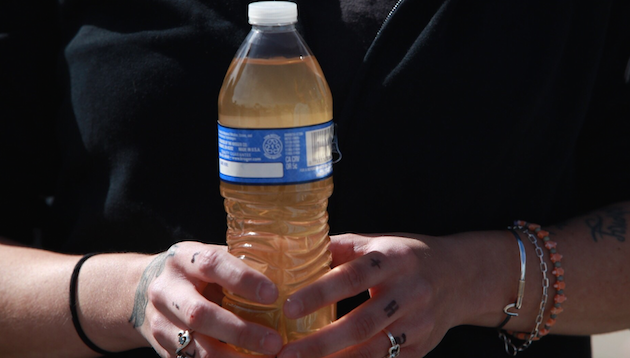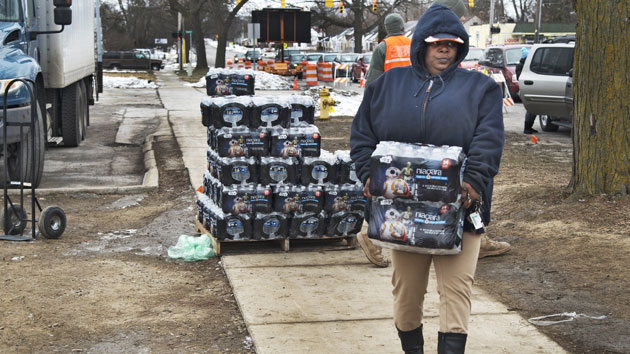
Ryan Garza/Detroit Free Press/ZUMA
Update, April 20, 10:20 a.m. EST: Three state and city officials have been charged in connection to the Flint water crisis. Flint employee Michael Glasgow was charged with tampering with evidence and two officials from Michigan’s Department of Environmental Quality, Steven Bush and Michael Prysby, were charged with office misconduct and tampering with evidence.
Michigan Attorney General Bill Schuette is expected to announce the first set of criminal charges on Wednesday in connection with the Flint water crisis that exposed city residents to dangerous levels of lead in their drinking water. The Associated Press reports that up to three officials will be charged, including two state regulators and one Flint employee.
The announcement comes just one day after a federal judge dismissed a $150 million lawsuit filed by Flint residents on behalf of those affected by the city’s contaminated water system. The “man-made disaster,” as Flint’s mayor called the situation, started with a 2014 move to switch the city’s water source to the Flint River instead of Lake Huron, where Detroit residents get their water, in an effort to save money.
Gov. Rick Snyder has come under pressure to resign amid growing evidence that state officials knew the change in water systems exposed residents to high levels of lead, leaving thousands of children at risk of brain damage. On Tuesday, Snyder announced he planned to drink filtered water from a Flint residence for at least a month in order to prove it is now safe to consume.
For more on the crisis, head to our investigation here.
















